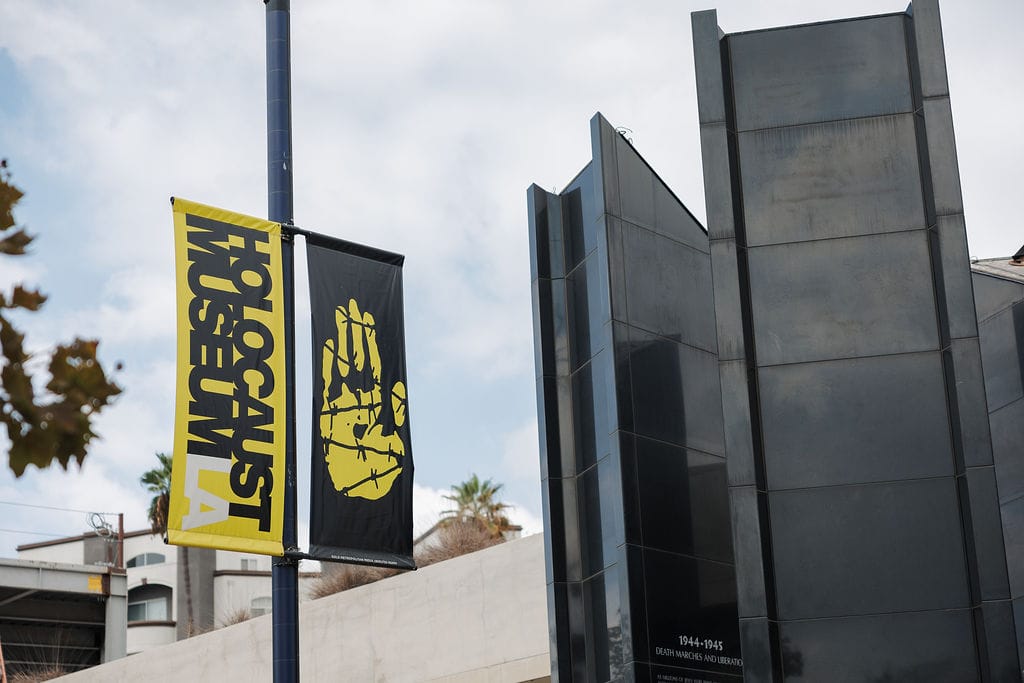Why LA's Holocaust Museum Instagram Post Sparked a Debate

The Controversy Surrounding the Holocaust Museum LA’s Statement
In late September, a statement by the Holocaust Museum LA sparked intense debate across social media platforms. The museum posted on its Instagram feed: “Never Again can’t only mean ‘never again’ for the Jews.” This message was interpreted by many as an acknowledgment of the ongoing crisis in Gaza, specifically referencing the genocide of the Palestinian people. The post quickly gained traction, drawing both support and criticism from users around the world.
The phrase "Never Again" has long been associated with the horrors of the Holocaust, symbolizing a commitment to prevent such atrocities from occurring again. However, the museum's statement appeared to expand this concept, suggesting that the principle should apply to all groups facing similar threats. This broader interpretation led to a significant reaction from the public, with many users expressing their approval, while others saw it as a misrepresentation of the Holocaust's unique historical context.
Public Reaction and the Removal of the Post
The original post received thousands of comments and over 139 shares before it was taken down two days later. In its place, the museum issued an apology, stating that the post had been intended to promote inclusivity and community but had been "easily open to misinterpretation." The apology emphasized that the museum did not intend to make a political statement about the situation in the Middle East. It also promised that future posts would be more carefully reviewed and vetted.
However, the removal of the post and the subsequent apology did not resolve the controversy. Instead, it intensified discussions about the role of institutions like the Holocaust Museum LA in addressing contemporary issues. Critics argued that the museum’s decision to remove the post was a step backward, undermining its mission to educate and prevent future atrocities.
Responses from Advocates and Activists
Hussam Ayloush, executive director of the Council on American-Islamic Relations, criticized the museum’s actions, calling it a "troubling retreat from the very moral lessons of the Holocaust." He expressed concern that the museum, which was founded to educate and prevent future atrocities, had chosen to remain silent on the issue of genocide in Gaza. Ayloush emphasized that no institution dedicated to remembrance should be pressured into silence, regardless of the political climate.
Alana Hadid, a Palestinian-American activist and creative director, echoed these sentiments, calling it "ridiculous" that a museum meant to teach tolerance would retract a post about inclusion due to fear of backlash. She questioned the museum's commitment to its core values, suggesting that it had failed to live up to its mission.
Miguel Camnitzer, a descendant of Holocaust survivors and member of Jewish Voice for Peace, described the situation as "deeply tragic but not surprising." While he praised the initial post for its ethical stance, he criticized the museum for quickly removing it. Camnitzer argued that museums should not only preserve history but also provide tools for addressing current-day injustices. He questioned the relevance of the Holocaust Museum if it could not help prevent future atrocities.
Diverging Opinions and Continued Debate
Not everyone shared the views of pro-Palestinian activists. Some commenters strongly opposed the original post, calling it an example of "Holocaust inversion." One user wrote, "This is such an utterly ridiculous post. Holocaust inversion from the official account of a Holocaust museum. Take them down please." Another user claimed that "Never Again" should only apply to the victims of the Holocaust, arguing that expanding its meaning would dilute its significance.
These conflicting perspectives highlight the complexity of the issue. While some see the museum’s original post as a necessary call for universal human rights, others believe it risks overshadowing the specific historical trauma of the Holocaust. The debate continues to unfold, raising important questions about how institutions should engage with contemporary conflicts while honoring their historical missions.
Post a Comment